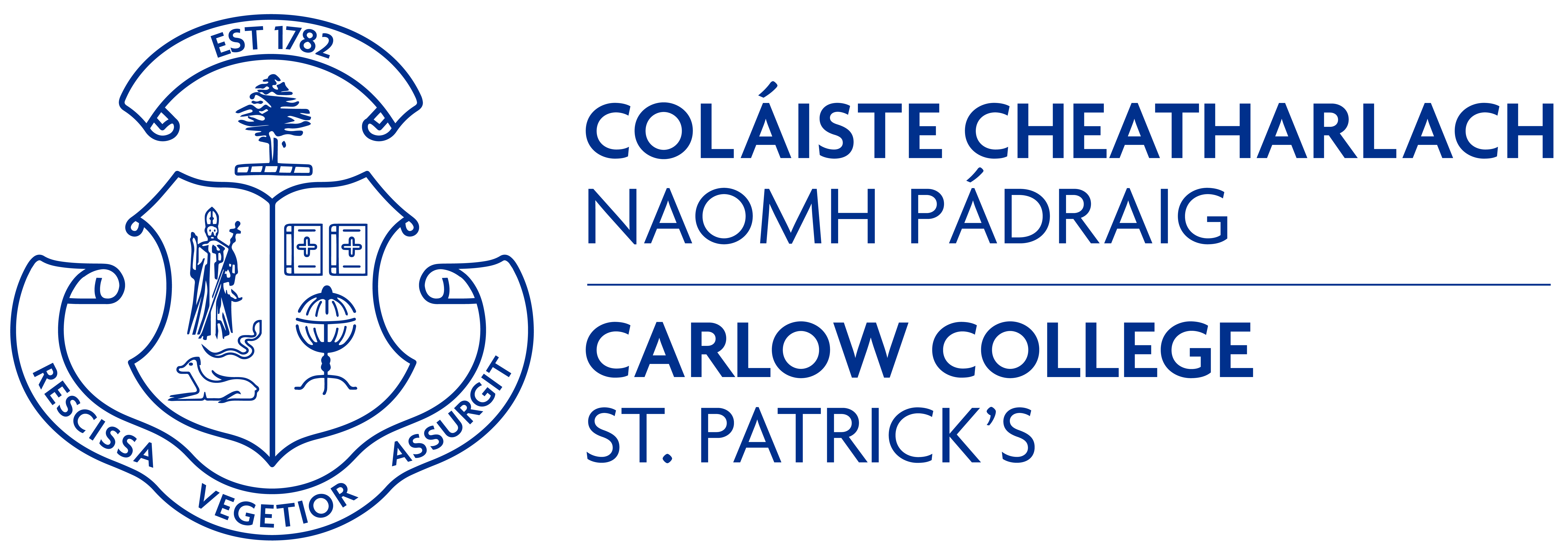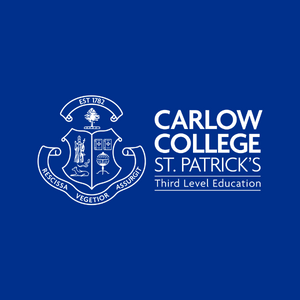About History
At Carlow College, St Patrick’s we do history. There is a focus on developing and refining the skills you need to practice history in a constantly evolving world. We place emphasis on the role the historian plays in contemporary discourses and focus on the place of the past in the present. All lecturers on the history programmes are PhD qualified and have academic publications.
There are three distinct pathways to achieving a degree in History at Carlow College, St Patrick’s. History is a core discipline on the BA (Hons) in English and History programme and can also be studied on the BA (Hons) in Arts and Humanities (Level 8) programme.
What Will You Learn?
In Stage 1, we offer modules that encourage you to roll up your sleeves and start the work of a historian. Modules like Toolkit for History develop the unique skills that a historian requires, and you will be encouraged to interview and engage with historians in the College to discover what the job of a historian really is. In Stage II, modules such as Career Skills and Practice focus again on the practicalities of ‘doing’ history and amplify the career opportunities available to professionally trained historians and give you hands on experience. By Stage III, you are encouraged to pursue your own research interests in modules such as Local History Project to examine a topic that interests and is relevant to you . In the final year of study, Stage IV, you undertake more in-depth historical research for a dissertation which again places emphasis on your own research interests. There are opportunities throughout to undertake primary research so that an innovative and scholarly historical research work can be created.
Irish, European, American, Imperial, Medieval, Transatlantic and Local history are explored in these degrees through a broad range of survey and thematic modules. Survey modules provide you with a broad working knowledge of an historical period. Examples include: The Age of Exploration, 1492-1763; Revolutions in the Transatlantic World, 1763-1877 and the Re-imagining Ireland series which examines Irish history from 1500-2000.
These survey modules are complemented by thematic modules which focus on specific topics and examine them in greater detail. Within these modules you are constantly ‘doing’ history, but in others such as Debating History, Public History and Cultural Heritage and Memory and Commemoration you use the knowledge gained in other modules to create theoretical and actual history events and to debate history helping you to hone critical thinking and analytical skills (key skills required for many jobs).
Over the course of four years, you will be transformed from an individual who has an interest in history into one that is a fully trained, practicing historian with a broad range of career opportunities in both the public and private sectors nationally and internationally. The opportunity to pursue a Postgraduate Masters in Education to teach is a staple option for history graduates, but there are also possibilities in other level 9 studies and in the heritage sector, tourism, the arts, public life, media and many more. The first step on the road to an exciting career is simply to choose to study History at Carlow College, St Patrick’s!
Careers
- Primary & post-primary teaching
- Museums & Cultural institutions
- Archive & Heritage
- Travel & Tourism
- Researcher
- Curator
- Heritage Officer
- Primary & Post-Primary Teaching
- Museums & Cultural Institutions
- Travel & Tourism
- Archivist
- Heritage Officer
- Archive & Heritage
- Researcher
- Curator





